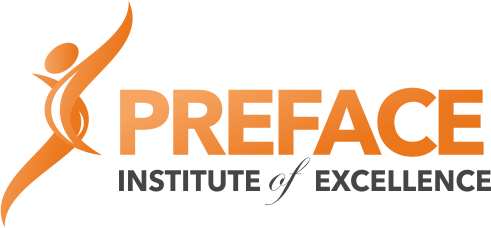Boosting Academic Motivation and Focus: Expert Tips for Boarding School Success
As experts in boarding schools and educational consulting, we recognize the challenges of keeping your child motivated and focused on their studies. The boarding school environment offers unique opportunities for growth and learning, but it also presents distinct challenges. Students must navigate living away from home, adapting to a new community, and managing their academic responsibilities independently. In this comprehensive guide, we will explore a variety of strategies to help your child thrive academically in a boarding school setting. We will discuss how to maintain academic motivation, enhance student focus, and employ effective learning techniques. Additionally, we will cover goal setting, time management, fostering a growth mindset, balancing personal and academic life, building a support network, and celebrating success. Remember, a happy and motivated student is more likely to excel academically, and our Tuck Box is the perfect treat to keep their spirits high throughout the term.
1. Creating a Positive and Productive Study Environment
A positive and productive study environment is essential for maintaining academic drive. The physical and psychological aspects of a student’s study space can significantly impact their ability to concentrate and absorb information. Here are detailed tips to help your child create an optimal study environment in their dormitory:
- Keep the study area clean and clutter-free: A cluttered space can lead to a cluttered mind. Encourage your child to regularly tidy their study area, putting away unnecessary items and organizing their materials. This practice not only enhances focus but also promotes a sense of order and control.
- Ensure the space is well-lit: Good lighting is crucial for reducing eye strain and maintaining concentration. Natural light is ideal, but if that’s not available, invest in a good desk lamp. The right lighting can make a significant difference in a student’s ability to stay alert and engaged during study sessions.
- Have all necessary study materials within reach: Organize the study area so that essential materials (books, notebooks, pens, and electronic devices) are easily accessible. This reduces the time and effort spent searching for items and helps maintain a steady workflow.
- Limit distractions: Encourage your child to put away mobile phones and other devices that can cause distractions. Setting specific times for checking social media or responding to messages can help minimize interruptions and enhance focus.
Creating a personalized study space can also make the environment more inviting and conducive to studying. Allow your child to add personal touches, such as photos, motivational quotes, or artwork, to create a space where they feel comfortable and inspired.
2. Setting Achievable Goals and Monitoring Progress
Goal setting is a powerful tool for keeping students motivated and focused on their academic progress. When students set clear and achievable goals, they have a roadmap for their academic journey. Here’s how to help your child set and achieve their academic goals:
- Work with your child to set realistic and achievable short-term and long-term goals: Short-term goals might include completing daily assignments or studying for upcoming tests, while long-term goals could involve achieving a certain GPA or mastering a particular subject. Ensure that these goals are specific, measurable, achievable, relevant, and time-bound (SMART).
- Regularly check in with them to discuss their progress: Schedule regular check-ins to discuss your child’s progress toward their goals. These conversations provide an opportunity to celebrate successes, address challenges, and make any necessary adjustments to their goals or strategies.
- Adjust goals as needed: Flexibility is important. If your child encounters unexpected difficulties or finds that a goal is too easy, be willing to adjust their goals to ensure they remain challenging yet achievable.
Tracking progress and celebrating milestones can help maintain motivation. Consider using visual aids such as charts or apps that track progress and provide reminders.
3. Time Management and Organization
Effective time management is crucial for staying on top of schoolwork and reducing stress. Boarding school students often have busy schedules, and managing their time effectively can make a significant difference in their academic performance and overall well-being. Here are detailed strategies for helping your child develop strong time management skills:
- Use a planner or digital calendar to track assignments and exams: Encourage your child to use a planner or digital calendar to keep track of assignments, tests, and other important dates. This practice helps students stay organized and ensures they are aware of upcoming deadlines.
- Break larger tasks into smaller, manageable steps: Large projects or assignments can be overwhelming. Help your child break these tasks into smaller, more manageable steps. This approach makes the work seem less daunting and provides a clear path to completion.
- Prioritize tasks based on deadlines and importance: Teach your child to prioritize their tasks by considering both deadlines and the importance of each assignment. This practice helps ensure that critical tasks are completed on time and reduces the risk of last-minute stress.
- Set aside specific study times each day and stick to a routine: Establishing a daily routine that includes designated study times can help your child develop consistent study habits. Encourage them to find a time of day when they are most alert and focused and to make studying a regular part of their schedule.
A well-organized student is more likely to maintain focus and overcome schoolwork challenges. To support their efforts, consider sending them our Tuck Box as a reminder that you are cheering them on from afar.
4. Encouraging Effective Learning Techniques
To help your child succeed academically, introduce them to a variety of effective learning techniques. Different students have different learning styles, and experimenting with various methods can help your child discover what works best for them. Here are some effective learning techniques to consider:
- Active reading: Encourage your child to engage with their reading materials actively. This might involve underlining key points, summarizing information in their own words, or asking questions about the content. Active reading helps improve comprehension and retention.
- Creating flashcards or mind maps for visual learning: Visual aids such as flashcards and mind maps can be highly effective for organizing and remembering information. Flashcards are particularly useful for memorizing vocabulary or key concepts, while mind maps can help students see the relationships between different ideas.
- Participating in group discussions or study sessions: Group study sessions can provide valuable opportunities for collaboration and deeper understanding. Encourage your child to join or form study groups where they can discuss material, share insights, and quiz each other on key concepts.
- Teaching the material to someone else: Teaching is one of the best ways to reinforce learning. Encourage your child to explain difficult concepts to a classmate or family member. This practice not only helps them solidify their understanding but also identifies any areas where they may need further study.
Experimenting with different techniques can help your child develop a versatile and effective approach to learning.
5. Fostering a Growth Mindset
A growth mindset—the belief that intelligence and abilities can be developed through hard work, effort, and perseverance—is key to academic success. Students with a growth mindset are more likely to embrace challenges, persist in the face of setbacks, and view effort as a path to mastery. Here’s how to foster a growth mindset in your child:
- Embrace challenges as opportunities for growth and learning: Encourage your child to see challenges as opportunities to learn and grow rather than as threats to their abilities. Remind them that struggling with difficult material is a normal part of the learning process.
- Focus on effort and improvement, rather than perfection: Praise your child for their effort and progress rather than for achieving perfect results. This approach helps them develop a positive attitude toward learning and reduces the fear of making mistakes.
- View setbacks as temporary and part of the learning process: Help your child understand that setbacks and failures are temporary and can provide valuable learning experiences. Encourage them to analyze what went wrong, learn from their mistakes, and develop strategies for improvement.
- Seek feedback and use it constructively to make improvements: Teach your child to seek feedback from teachers and peers and to use that feedback constructively. Viewing feedback as a tool for growth rather than as criticism can help them improve their performance and build resilience.
By fostering a growth mindset, you can help your child develop a love of learning and a willingness to persevere through challenges.
6. Encouraging Balance and Self-Care
Maintaining a balance between academic and personal life is essential for overall well-being. Students who take care of their physical and emotional health are more likely to stay motivated and perform well academically. Here are some strategies for encouraging balance and self-care:
- Regular exercise: Physical activity is important for both physical and mental health. Encourage your child to engage in regular exercise, whether through sports, fitness classes, or recreational activities. Exercise can help reduce stress, improve mood, and enhance concentration.
- Adequate sleep: Ensure that your child prioritizes getting enough sleep each night. Sleep is crucial for cognitive function, memory consolidation, and overall health. Help them establish a consistent sleep schedule and create a relaxing bedtime routine.
- Healthy eating: A balanced diet can have a significant impact on energy levels and cognitive function. Encourage your child to make healthy food choices, including a variety of fruits, vegetables, whole grains, and proteins. Limiting sugary snacks and drinks can also help maintain steady energy levels throughout the day.
- Participation in extracurricular activities: Extracurricular activities can provide a sense of balance and fulfillment. Encourage your child to pursue interests outside of academics, whether through clubs, sports, arts, or volunteer work. These activities can provide a break from academic stress and help develop a well-rounded skill set.
- Maintaining social connections: Strong social connections are important for emotional well-being. Encourage your child to maintain relationships with friends and family, even if it’s through virtual means. Regular social interactions can provide support, reduce feelings of isolation, and enhance overall happiness.
To help your child maintain a sense of balance, consider sending them our Tuck Box as a reminder that you care about their well-being.
7. Building a Support Network
A strong support network is essential for maintaining academic motivation. In a boarding school environment, students have access to a variety of resources and individuals who can provide support and guidance. Here are some ways to help your child build a robust support network:
- Encourage your child to connect with teachers: Teachers are valuable resources for academic support. Encourage your child to ask questions, seek clarification, and attend office hours if they need additional help. Building a positive relationship with teachers can also provide valuable mentorship and encouragement.
- Utilize tutors and counselors: Many boarding schools offer tutoring services and counseling support. Encourage your child to take advantage of these resources if they are struggling academically or emotionally. Tutors can provide targeted academic assistance, while counselors can help with personal and emotional challenges.
- Foster peer support: Peer support can be incredibly valuable. Encourage your child to build strong relationships with classmates and dormmates. Study groups, peer mentoring, and collaborative projects can provide mutual support and enhance learning.
- Maintain open communication with family: Ensure that your child knows they can always reach out to you for support. Regular check-ins, whether through phone calls, video chats, or visits, can provide emotional support and reassurance.
Building a strong support network helps ensure that your child has access to the resources and encouragement they need to succeed.
8. Celebrating Success and Progress
Regularly acknowledging and celebrating your child’s hard work, achievements, and progress can significantly boost their confidence and motivation. Celebrating successes, both big and small, reinforces positive behaviors and encourages continued effort. Here are some ways to celebrate your child’s achievements:
- Acknowledge academic achievements: Celebrate your child’s academic successes, whether it’s a high grade on a test, completing a challenging assignment, or mastering a difficult concept. Positive reinforcement helps build confidence and motivation.
- Celebrate personal milestones: Recognize and celebrate personal achievements and milestones, such as participating in extracurricular activities, developing new skills, or showing resilience in the face of challenges.
- Provide positive feedback: Regularly provide positive feedback and encouragement. Highlight their strengths, effort, and improvements. Constructive praise helps build self-esteem and reinforces a growth mindset.
- Surprise with thoughtful treats: Consider sending your child a Tuck Box filled with delightful treats as a unique way to celebrate their achievements. A surprise package can provide a morale boost and remind them that you are proud of their efforts.
Celebrating successes helps create a positive feedback loop that encourages continued hard work and dedication.
Conclusion
Helping your child maintain academic motivation and focus in boarding school is crucial for their overall success. By creating a positive study environment, setting achievable goals, managing time effectively, fostering a growth mindset, encouraging balance and self-care, building a support network, and celebrating success, you can support your child’s academic journey and well-being.
Ready to surprise your child with a Tuck Box filled with delicious treats? Visit our website today to order and show your support for their academic journey! Your thoughtful gesture can make a significant difference in keeping their spirits high and their motivation strong throughout the term.
Preface Institute: Pioneering Boarding School Preparation
Preface Institute stands as a beacon among boarding school preparation institutions, renowned for its innovative methodologies and comprehensive approach to nurturing academic excellence and personal growth. Founded with a commitment to preparing students for the challenges of boarding school admissions, Preface Institute has carved a niche for itself through its unique blend of academic rigor, personalized guidance, and holistic development strategies.
History and Mission
Established with a vision to bridge the gap between traditional education and the demanding standards of boarding school admissions, Preface Institute was founded by a team of educators and experts in child development. Since its inception, the institute has aimed to empower students not only academically but also socially and emotionally, preparing them to thrive in diverse and competitive educational environments.
Unique Methodology
Preface Institute distinguishes itself through its distinctive methodology, which integrates several key elements:
- Customized Academic Planning: At Preface Institute, each student undergoes a personalized academic assessment and planning session. This initial step allows the institute to tailor its approach according to the student’s strengths, weaknesses, and aspirations. By identifying academic gaps early on, Preface ensures targeted and efficient learning strategies.
- Comprehensive Curriculum: The institute offers a rigorous curriculum that aligns with the academic standards of leading boarding schools. This curriculum not only covers core subjects but also includes specialized courses and enrichment programs designed to enhance critical thinking, problem-solving skills, and creativity.
- Focused Test Preparation: Recognizing the significance of standardized tests in the boarding school admissions process, Preface Institute provides intensive preparation for exams such as the SSAT, ISEE, and SAT. The institute employs experienced instructors who employ proven strategies to help students achieve their optimal scores.
- Holistic Development: Preface Institute places a strong emphasis on holistic development. Beyond academics, students engage in extracurricular activities, leadership training, and community service initiatives. This holistic approach aims to cultivate well-rounded individuals who are not only academically proficient but also socially adept and empathetic.
- Individualized Mentorship: Each student at Preface Institute is assigned a dedicated mentor who serves as a guide throughout their journey. Mentors provide academic support, offer career guidance, and foster personal development. This one-on-one mentorship ensures that students receive tailored advice and encouragement tailored to their unique needs and aspirations.
- Parental Involvement: Preface Institute recognizes the crucial role of parents in a student’s educational journey. The institute maintains open lines of communication with parents, providing regular progress reports and hosting workshops to educate parents about the boarding school application process. This partnership ensures that parents are well-informed and actively involved in supporting their child’s academic and personal growth.
Success Stories and Impact
Over the years, Preface Institute has garnered a reputation for excellence, with a high success rate in placing students in top-tier boarding schools. Alumni of the institute have gone on to excel not only academically but also in their chosen fields, equipped with the skills and confidence instilled during their time at Preface.
Community and Outreach
Beyond its core programs, Preface Institute is committed to giving back to the community. The institute participates in outreach programs aimed at providing educational opportunities to underprivileged students. Through partnerships with schools and nonprofit organizations, Preface extends its resources and expertise to benefit a wider audience, embodying its mission to promote educational equity and access.
Future Directions
Looking ahead, Preface Institute continues to innovate and evolve its programs to meet the changing landscape of education and boarding school admissions. The institute remains dedicated to nurturing the next generation of leaders and scholars, equipping them with the skills and resilience needed to thrive in an increasingly competitive global environment.
In conclusion, Preface Institute stands as a testament to the transformative power of education and personalized mentorship. Through its unique methodology, the institute not only prepares students academically but also fosters their personal growth and leadership potential. As it continues to uphold its commitment to excellence, Preface Institute remains a trusted partner for families seeking to navigate the journey to boarding school admissions with confidence and success.









